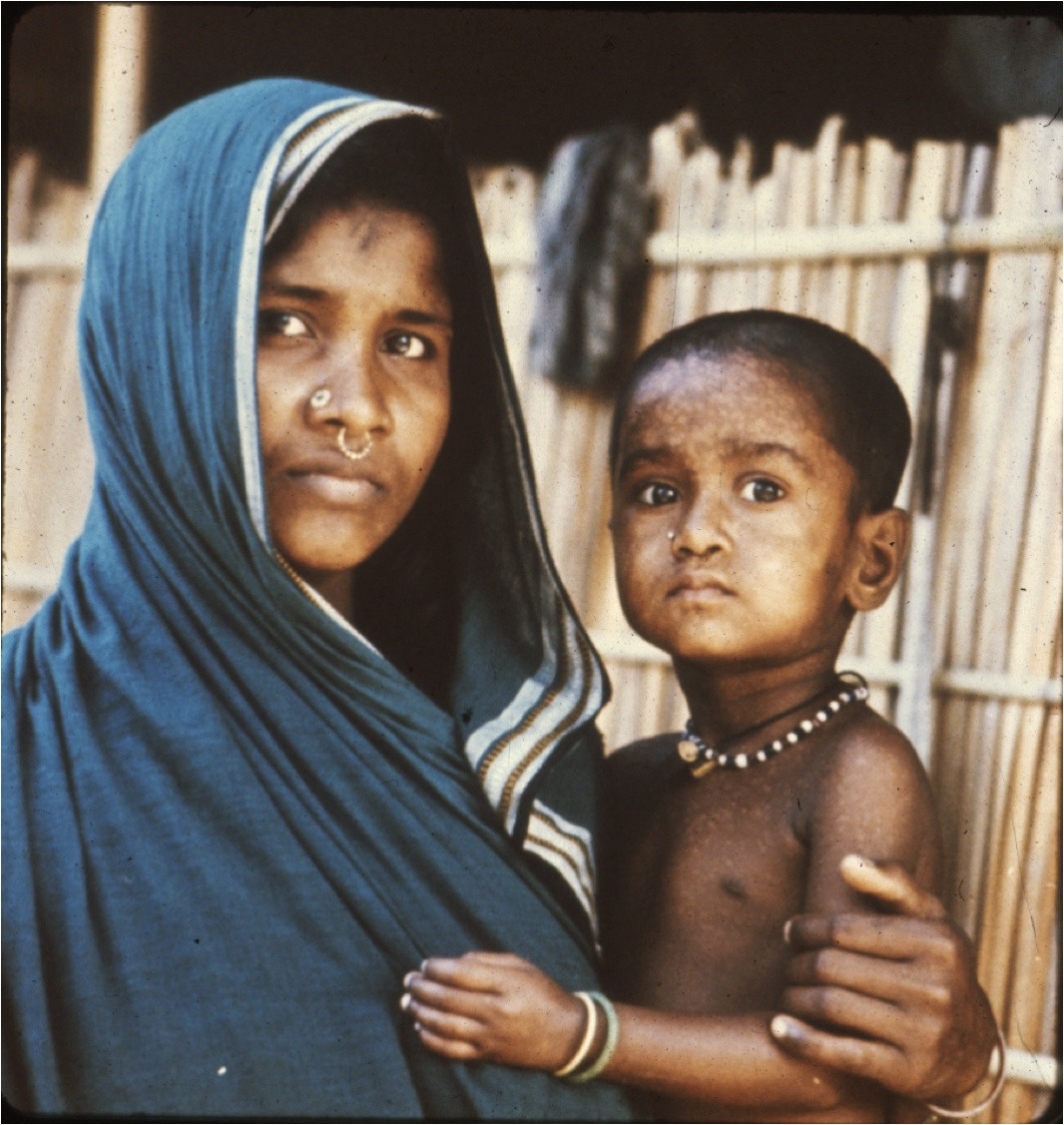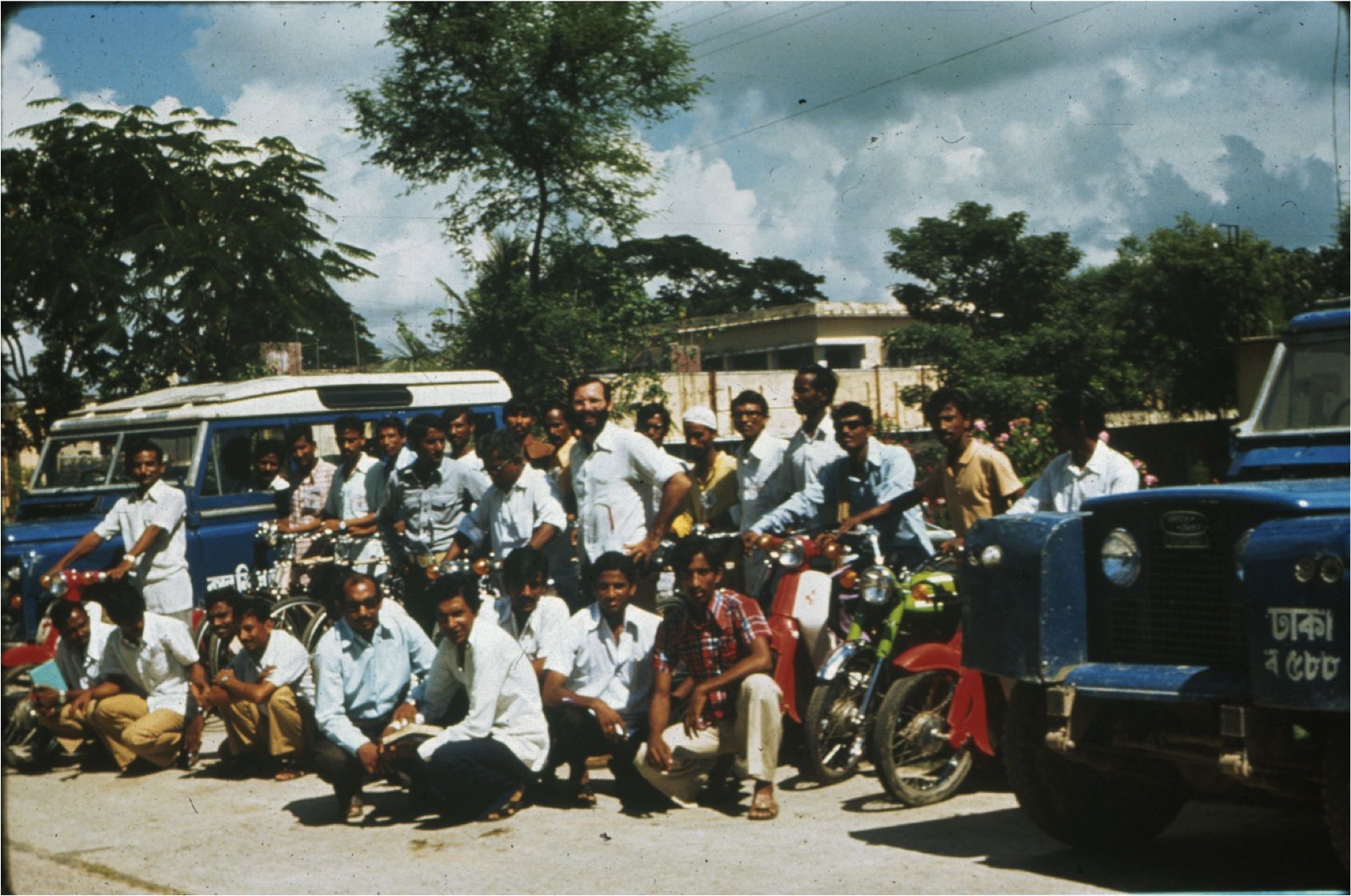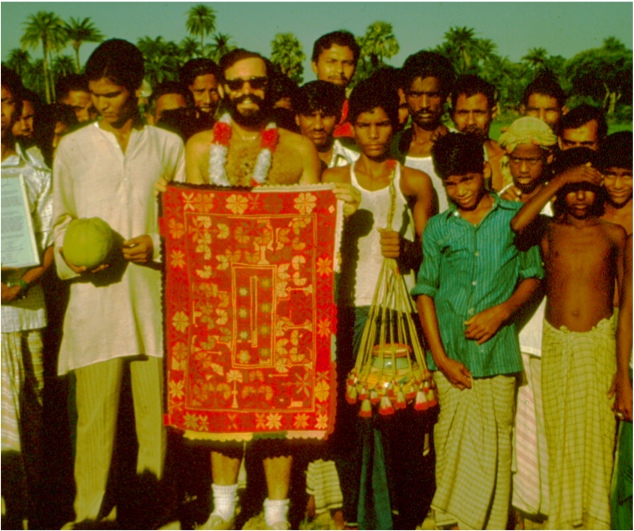This week the World Health Assembly marked the 30th anniversary of the eradication of smallpox with a statue recognizing Edward Jenner, developer of the smallpox vaccine, outside of the WHO building in Geneva. In her remarks, WHO Director-General Dr. Margaret Chan, described it as an example of "what collective action for a common cause can achieve," and went on to link it with vaccines, which she called "one of the best life-saving buys on offer."
I never really knew smallpox but for many people around the world during the 1960's and 70's, the word smallpox inspired fear. It led to death and serious illnesses, and for some survivors, blindness or disfiguring scars that lasted a lifetime.
For me, thinking about smallpox eradication brings back a childhood memory of my dad being away for three months in Bangladesh as a "smallpox warrior".
A pediatrician, epidemiologist, and vaccine researcher, he spent August to October 1975 in Rajshahi District of Bangladesh organizing surveillance for cases of "variola major" - the deadliest form of smallpox - and the immunization campaigns required to contain it and snuff it out. Efforts that succeeded with the last known case of smallpox in Asia in October 1975.
In an age before Skype, e-mail or cell phones, my dad recalls just one call home in those three months. "I had to book the call 24 hours in advance and wait by the phone for 18 hours to be sure I was there when it rang. I had a crowd of 30 people around me, and afterwards, all anyone could talk about was how I had made a call to America from right there in their village."
My mom says that there were letters but that they took a long time to get to her. When I asked how she managed with two little kids and no knowledge of how dad was doing in rural Bangladesh, she replied, "It's just what we did in those days".
My wife and I both work in global health. She's in the midst of a two week trip through Africa. I was gone for half of April with my own travel. This morning our daughters grilled me pretty hard -- "Why do you and mommy have to travel so much?" they asked. "We can't have a family bike ride if you're both not here," observed Jessie, age 5. "You miss special days like Arts Night when you're not here", Abby, age 7, pointed out.
While it pulled my heartstrings to hear it, I thought that this might be a "teachable moment". So, we talked about how the work that mommy and daddy do helps people, especially children, around the world. They started asking questions about which people, and why do they need vaccines or treatments. "Don't they have those plants that work like medicines," asked Jessie. Without going into too much detail, I tried to get across to them the commitment to social justice that drives us to make the sacrifices that come with being away from them for long periods of time.
It's too early to tell if my kids understand why my wife and I do what we do in our day jobs. I didn't appreciate the significance of what my dad was doing in Bangladesh until many years later. Maybe it's too early to even judge whether the work we do is really having an impact on global health, although I'd like to believe otherwise.
So, as the World Health Assembly recognizes the achievement of smallpox eradication and celebrates the power of vaccines for improving global health, I'll be reminded of my mother, who looked after her six and nine year old alone for three months with little information on what was happening to her husband as he mopped up smallpox cases in rural Bangladesh. And I'm hoping that in another 30 years, vaccines and other interventions will help eliminate today's health inequities so that the contributions of my wife and I to global health will make sense to a five and seven year old who are struggling today to understand the sacrifices we make for it.
Support HuffPost
Our 2024 Coverage Needs You
Your Loyalty Means The World To Us
At HuffPost, we believe that everyone needs high-quality journalism, but we understand that not everyone can afford to pay for expensive news subscriptions. That is why we are committed to providing deeply reported, carefully fact-checked news that is freely accessible to everyone.
Whether you come to HuffPost for updates on the 2024 presidential race, hard-hitting investigations into critical issues facing our country today, or trending stories that make you laugh, we appreciate you. The truth is, news costs money to produce, and we are proud that we have never put our stories behind an expensive paywall.
Would you join us to help keep our stories free for all? Your contribution of as little as $2 will go a long way.
Can't afford to donate? Support HuffPost by creating a free account and log in while you read.
As Americans head to the polls in 2024, the very future of our country is at stake. At HuffPost, we believe that a free press is critical to creating well-informed voters. That's why our journalism is free for everyone, even though other newsrooms retreat behind expensive paywalls.
Our journalists will continue to cover the twists and turns during this historic presidential election. With your help, we'll bring you hard-hitting investigations, well-researched analysis and timely takes you can't find elsewhere. Reporting in this current political climate is a responsibility we do not take lightly, and we thank you for your support.
Contribute as little as $2 to keep our news free for all.
Can't afford to donate? Support HuffPost by creating a free account and log in while you read.
Dear HuffPost Reader
Thank you for your past contribution to HuffPost. We are sincerely grateful for readers like you who help us ensure that we can keep our journalism free for everyone.
The stakes are high this year, and our 2024 coverage could use continued support. Would you consider becoming a regular HuffPost contributor?
Dear HuffPost Reader
Thank you for your past contribution to HuffPost. We are sincerely grateful for readers like you who help us ensure that we can keep our journalism free for everyone.
The stakes are high this year, and our 2024 coverage could use continued support. If circumstances have changed since you last contributed, we hope you’ll consider contributing to HuffPost once more.
Already contributed? Log in to hide these messages.



